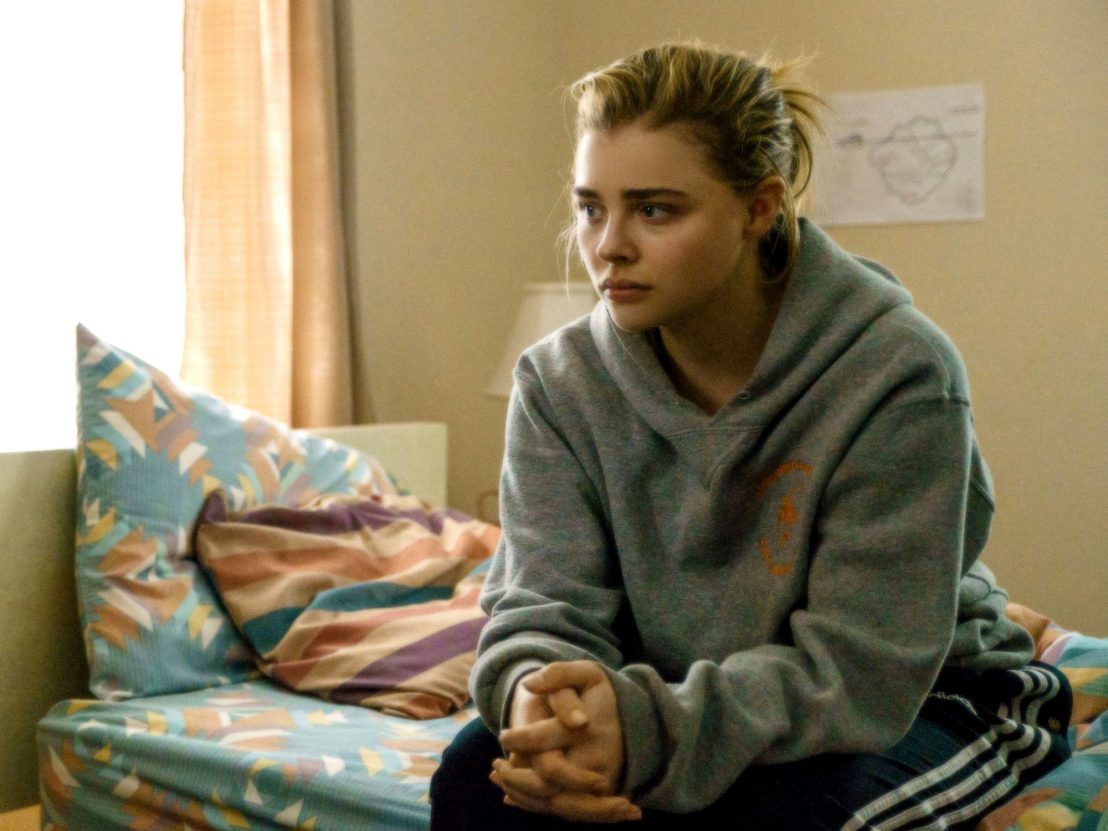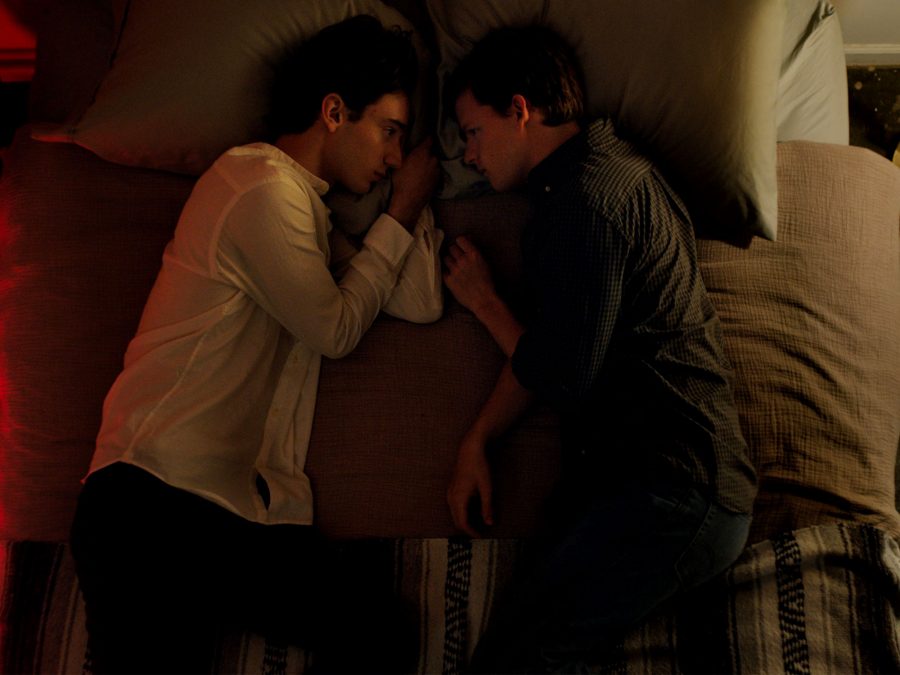
In times of crisis, cinema often holds a mirror to the world, refracting it through fiction to help us see the truth. Desiree Akhavan’s The Miseducation of Cameron Post and Joel Edgerton’s Boy Erased both confront the horrors of gay conversion therapy, and both were adapted from bestselling books. The films have been appropriately anticipated in light of the Trump administration’s anti-LGBT policies, demonstrating that just as representation matters, condemnation does too.
Akhavan’s film takes its cue from Emily Danforth’s bestselling YA novel of the same name, chronicling the eponymous teen’s quiet rebellion against the hollow morality of a midwestern conversion camp. Cameron Post feels like a distant cousin of a John Hughes film, homing in on the knotty, contradictory rhetoric of such places. One of the film’s standout scenes sees Jennifer Ehle, as Dr Marsh, going tête-à-tête with Chloë Grace Moretz’s Cameron, the roiling fire of fear stoking Marsh’s porcelain complexion.
Cameron Post shows how the blanket nonsense of pseudoscience wages a war of attrition against these teens – Dr Marsh presents her views with the same wholesome truth as a glass pitcher of cold milk. And yet Akhavan’s supreme capacity for empathy challenges us to grapple with sympathy for the practitioners too, showing how ossified people can become in the pit of bigotry. Their empathy is broken, and without it they drive this agenda home, eschewing reason or the teens’ pleas in the process.

Boy Erased sees Joel Edgerton take on Garrard Conley’s 2016 memoir, offering a striking showcase for queer performers such as Troye Sivan, Xavier Dolan, and Cherry Jones. The film supplants the tragicomic trappings of Cameron Post with a more enraged excoriation of 12-step gay cure programmes. As biography, it’s harder to stomach. Raped by a college friend, and outed days later by him, Jared’s (Lucas Hedges) pastor father (Russell Crowe) sends him to a conversion therapy programme, whose teachings are commonplace in fundamentalist Arkansas. Within six months of ‘private treatment’, Conley becomes suicidal before being mercifully pulled out.
More so than Cameron Post, Boy Erased charts its protagonist’s anguished relationship with his parents, whom he loves in spite of their bigotry – to them, Hell is real, homosexuality is a disease and Lindsay Graham is spouting the words of God. Though the zealotry and violence we commonly link to conversion therapy conjures a tiny subset of US society to mind, in fact, according to a UCLA report, over 700,000 adults have experienced it in the US, over half as teenagers.
While both films show the verbal abuse suffered by those forced to attend such camps, some known methods in the US include testicular removal surgery, electroshock therapy, enforced celibacy and solitary confinement. As such, Akhavan and Edgerton do well to sensitively portray the horrors of the subject matter, without dipping into melodrama or outright ‘tragedy porn’. Nonetheless, a harrowing tableau in Conley’s book outlines a ‘mock funeral’ of an AIDS victim, where camp members pose as friends and family, performing an obituary and a graphic chronicle of his death.
Moretz and Hedges too convey the enormous power of shame to subdue and self-limit. It sits somewhere deep in their chest, like a radioactive stone carving them out with its toxic glow. Shame drives them inwards, unable to tackle the rhetoric and rituals of the camps without first exorcising the cancer of hatred coursing through them. Both films also hint at the misalignment brought about by these therapies, the idea that one’s identity will be erased, or misled, until it no longer exists.
While these films are set in the early 1990s, where the “pray the gay away” maxim still felt more prevalent in Lifetime films than mainstream society, the evils of conversion therapy persist today. This year, the UK became only the second country in Europe (after Malta) to ban gay conversion therapy. In parts of Australia, the US and China, the practice is still legal. And although 40 years have elapsed since the American Psychological Association removed homosexuality from its list of clinical disorders, a 2015 Stonewall study of medical professionals in the UK found 10 per cent believed lesbian, gay and bisexual people could be “cured” of their orientation.
By finding different ways to confront the destructive practice of conversion therapy, The Miseducation of Cameron Post and Boy Erased champion narratives where LGBT youth understand the legitimacy of their identities, offering models of self-acceptance for generations to come.
Published 5 Sep 2018

Jamie Babbit’s film offers a more comedic critique of conversion therapy.

Desiree Akhavan presents a confident, heartbreaking portrait of life inside a Christian conversion therapy camp.

James Ivory and Ismail Merchant’s stunning 1987 love story prizes sensuality over intellectualism.